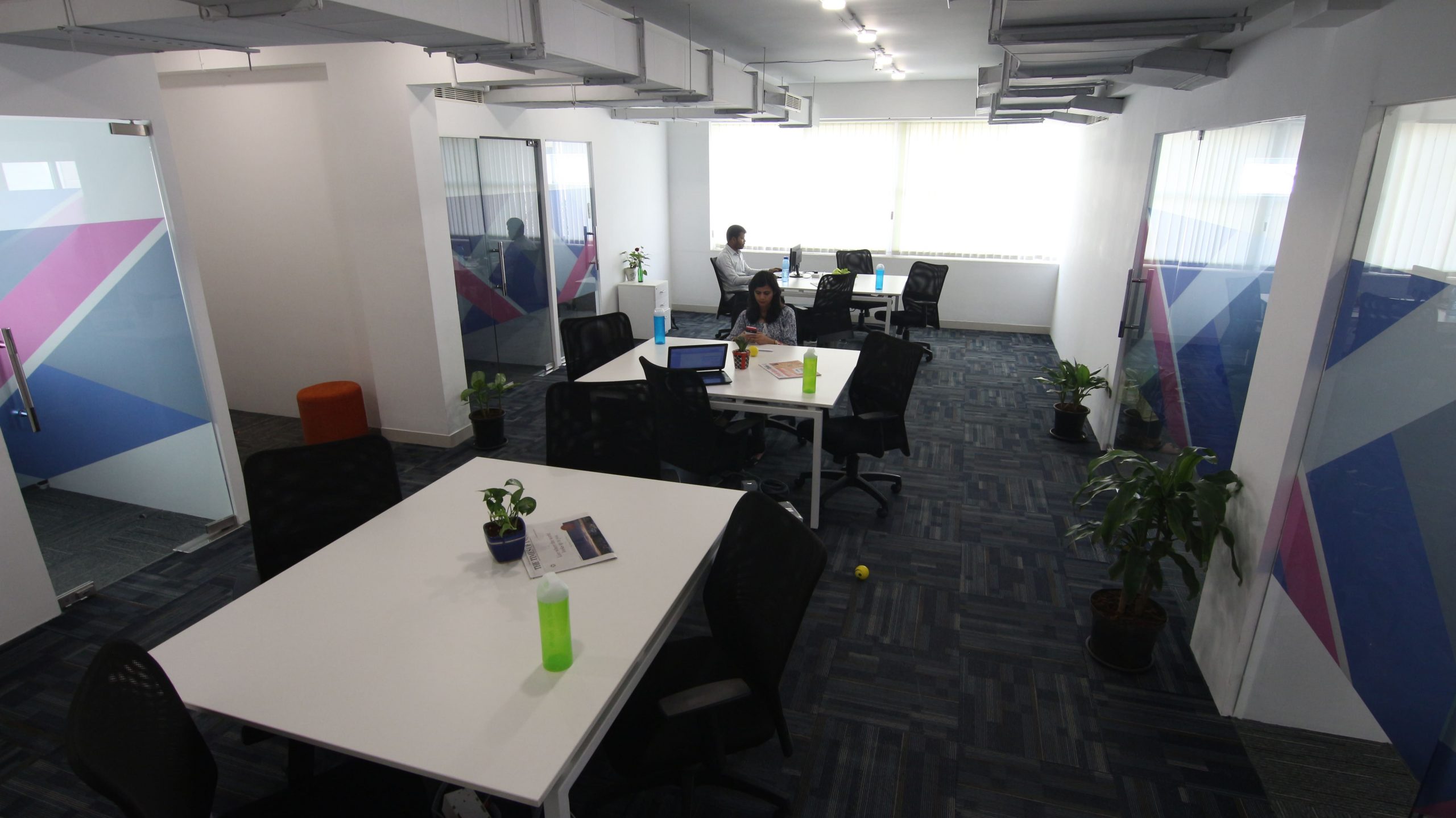
Coworking spaces are becoming increasingly popular in India. COVID-19 had a significant impact on the entire coworking industry. Employees began working from home rather than in coworking space as a result of the epidemic. But now things have changed drastically. Start-ups have once again begun to adopt the coworking culture by renting coworking spaces for more efficient company operations. Today, it is critical to follow the ongoing trends in the market because people’s business requirements alter with time. According to a recent poll, 73% of office occupiers in India are considering office space for rent, compared to 52% in Asia-Pacific. Fully furnished office space occupancy rates have already risen to 90-100%, up from 45-60% a year earlier.
Main Trends in Coworking Space
Hybrid Design
A flexible workplace with hybrid work technologies will remain the norm as the need for on-demand rooms grows. Once businesses see the advantages, they will endeavour to improve flexibility and agility, outsource workspace delivery, and save capital expense. In summary, businesses will go hybrid, and remain hybrid rather than remote or working from home or full-time.
Flexible negotiations
Many coworking spaces provide extremely flexible contracts. You can extend, upgrade, downgrade or terminate your membership easily, there are flexible choices. This makes it an excellent choice for office space for rent and see how you like it. In the coming years, with less need for permanent space acquisition and flexi leases, demand will rise for leasing options that allow greater autonomy without compromising co-working space agility. This will be most noticeable in Grade A premises that service mostly medium and large-sized businesses as occupants will be prepared to make long-term commitments for such locations under this paradigm. Many coworking spaces are open 24 hours a day, seven days a week, so you don’t have to worry about when you need to get things done.
The New Economy
The gig economy is defined by short-term project-based work rather than long-term fixed jobs. The freelance arrangement has grown in popularity over time and is now considered mainstream. It is increasingly the favoured method of working, for both businesses and employees. The emergence of the start-up culture, the expanding millennial workforce and youth-oriented demography, and people’s evolving preferences for flexible and meaningful work purposes have all contributed to the rise of the gig economy in India. With almost 15 million freelancers, our country ranks second only to the United States (53 million). For gig workers also, coworking spaces in Hyderabad are preferred as they offer day passes or flexi passes to rent office space by the hour or for a couple of days.
Rising popularity in tier 2 cities
With a major section of the workforce returning to work, the need for high-quality flex spaces in metro suburbs and non-metro locations to run regional offices will rise. Metros remain popular with the flex space providers, yet the benefits of connectivity and operating in tier-II cities in a decentralised structure are important drivers. While core activities will continue to be housed in a central location, sufficient employee numbers will enable the establishment of coworking hubs that will bring the workplace closer to the employee and retain talent, hence lowering space and infrastructure costs.
Coworking spaces are already growing in demand in non-metropolitan areas, in addition to metropolitan areas. This trend is likely to expand significantly in the next few years. Shared office spaces, regardless of their location, give individuals all they need to operate effectively even while working remotely, and thrive in their businesses. Because of the ever-increasing need for flexible and collaborative workplaces, workspace providers shall be delivering high-quality services.
Technology is everywhere
Managed office space is all about enhanced automation, access control, CCTV surveillance, among others where attendance and facility are restricted in authorised spaces. Also, there is server access from remote locations. In the coming times, the use of technology will provide further insights into optimal office automation.
Well-being and productivity
There are studies that state that a constrained work environment at home has taken a toll on people’s mental health and productivity. Working from home may cause your days to be consumed with chores or getting distracted. Delays in submissions and failure to fulfil deadlines can lead to stress and a last-minute rush. Flexi-workplace managers will prioritise a hassle-free work environment and staff welfare in the future too, just as they are emphasising community engagement now. Meditation rooms and game areas will be frequent, as will the use of plants throughout the interiors.
In Conclusion
Corporations are increasingly renting out seats in coworking spaces to accommodate their independent contractors and temporary workers in the fast-growing economy. Coworking spaces have facilities and furnishings set up, which saves the employer a lot of time. It is both convenient and economical. Many reliable coworking spaces such as iKeva are a part of this evolving trend in India. iKeva maintains a regular workflow balance in the shared office space by providing high quality workspaces with minimum hassles and packed with all kinds of benefits.
Coworking spaces are becoming increasingly popular among independent contractors and freelancers, who are carving out new career paths in the…
The need for Coworking Spaces in Hyderabad has risen significantly as the city has gained popularity as a business hub.…
In a Coworking space, one comes across an utterly mismatched sort of people. From complaint-boxes to cheerleaders, from soreheads to…